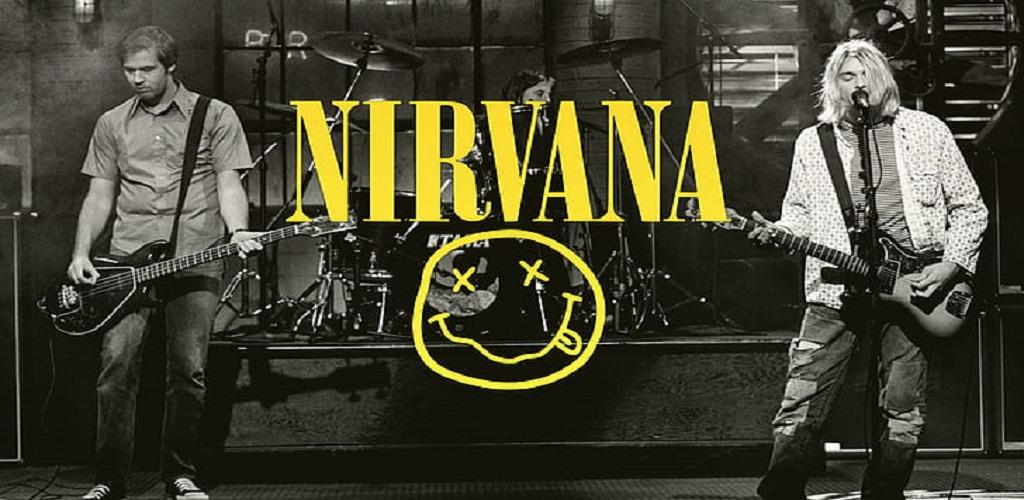

No, he's just a skinny young fella who played his guitar, sang some songs, got into it, finished up and that was that. He doesn't set his guitar on fire a la Jimi Hendrix. Screw any sort of Pete Townsend guitar destruction. After the band stops playing, he awkwardly steps off stage and signs some things for people, then ambles off. Heck, Cobain is about as unassuming as you could get. The band members don't come across as rock stars. Have you watched the footage from the performance? Have you spent time with the album? Song for song, performance for performance, it may be Nirvana's finest hour (well, 54 minutes). No doubt some of it was rebellion for the sake of rebellion, but I also think Cobain, Dave Grohl, Krist Novoselic and Pat Smear saw this as an opportunity to do something they wouldn't normally have a chance to do, and that was to branch out, have fun, invite friends on stage and do a concert they could enjoy for themselves.Īnd it paid off. More often than not, and sometimes to their detriment, the band shirked expectation and did what they wanted. And it's unlikely the Lead Belly track was known to general listeners outside the blues faithful. Unless you were a big underground music person, I'd wager the songs by The Meat Puppets and The Vaselines were totally new to your ears. That's right, almost half of the performance is cover material! Nirvana tackle David Bowie ("The Man Who Sold the World"), The Vaselines ("Jesus Doesn't Want Me for a Sunbeam"), The Meat Puppets ("Plateau," "Oh, Me" and "Lake of Fire") and Lead Belly ("Where Did You Sleep Last Night?").

The performance of "About a Girl" would be released as a single from the live album eventually, but at this point it was just a standout track on "Bleach."Īlso of the 14 songs in the show, only eight were Cobain originals. Sure, "All Apologies" would be released as a single from "In Utero," but that release came about a month after taping the unplugged show. No "Smells Like Teen Spirit," no "Heart-Shaped Box," no "Lithium" or "In Bloom" or.
NIRVANA MTV UNPLUGGED LIVE TV
Consider that, consider the bravery (or arrogance) in denying the network and the audience and the fans who'd be watching on TV the performances of your best-known songs. Of the 14 songs included on the album, only one could reasonably be considered a hit (it being "Come As You Are," the second single from "Nevermind"). So what makes Nirvana's "unplugged" album so special? The variety, the performances, the guests, the insight into the tastes and personality of the band, the ability for a group known for its "noise" to lock into a spellbinding groove in a much more tranquil and toned-down presentation.
NIRVANA MTV UNPLUGGED LIVE SERIES
To date, the live releases (audio and visual) have been excellent, definitive and essential.Īnd none more so than "MTV Unplugged in New York," the concert filmed as part of MTV's popular series that gave artists a chance to perform songs acoustic in a more intimate setting and with some storytelling and anecdotes tossed in throughout (of course, Cobain didn't quite follow the acoustic-only rule and ran his guitar through amplification and effects).

The tragic death of Kurt Cobain precluded the band from hitting mid-life sags, artistic flops or stretches of releasing content just to release content. Nirvana perhaps was blessed in a way by its relatively short existence. Some of those live albums are truly magnificent, and some are obvious cash-ins. A good live album is a souvenir for those who saw the show, and a postcard for those who wish they were there. Something you aren't likely to experience again. A good live album captures something for you, a snapshot of a band at its peak, or a frozen moment of something transcendent. But I think it's safe to say that most of us have seen some good shows, even great shows, but darn few us of have seen shows of the life-changing kind.Īnd that's part of the appeal to live albums. If you're lucky, you've been to a concert where you can say that rang true for you, that you lived that perfection and you carry the mark of the experience. That perfection comes from nailing the feeling, capturing the moment, imprinting something on your spirit or your memory that never fades over time. Some live albums are so good, you'd swear they'd have to be studio albums to reach that level of near perfection.Īnd that live perfection isn't necessarily from perfect playing, or hitting all the right notes, or getting the lyrics right.


 0 kommentar(er)
0 kommentar(er)
